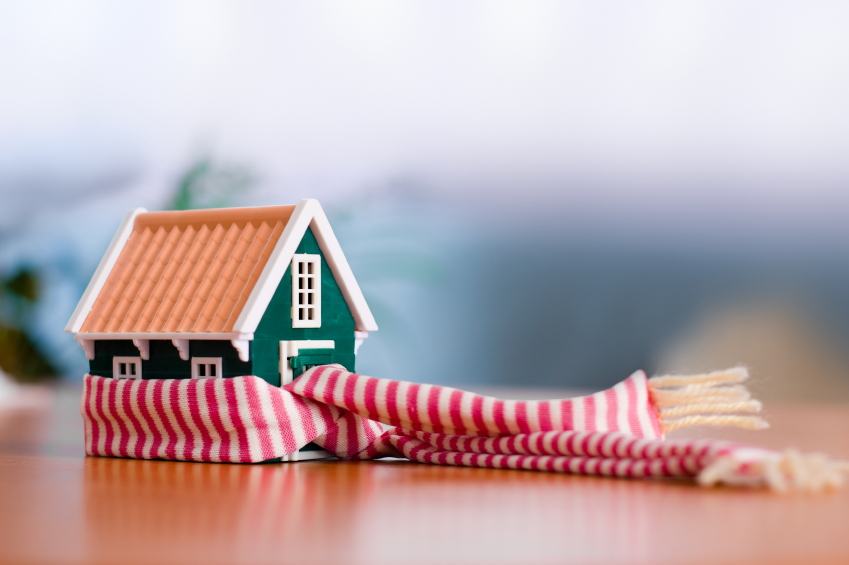This article is an external press release originally published on the Landlord News website, which has now been migrated to the Just Landlords blog.

This weekend sees Christmas upon us once a month, but Storm Barbara is threatening to take away the festive cheer for many. With this in mind, ensure you protect your properties this Christmas to avoid any damage.
Winter weather, particularly flooding, can cause real and structural damage to a property. Not only will your tenants be forced out of their home, but you will have to claim on your landlord insurance. You may find that if your actions or inactions caused the issue, you could be liable for some, or all, of the repairs.
If you know that your tenants will be away over the holiday season, it is vital that you protect your property to avoid any winter-related damage.
With this in mind, follow these tips and arrange an inspection with your tenants, before it’s too late!
- Check the lagging in your loft
Head up to the loft and check the lagging around the water pipes and cold water storage tank. Even small gaps could let in cold air and freeze the pipes, or even the water in the tank. If there are pipes in the attic, eaves and cupboards, they are typically more exposed and are prone to freezing.
- Leave the central heating on permanently
This is something that you should advise your tenants to do – leave the central heating on at a minimum temperature of 15°C to protect against damp and condensation. Fitting thermostatic valves to the radiators will allow you (and your tenants) to set the valves so that the radiator comes on when the temperature falls below a certain level. This enables the heating to be kept on low without having to heat the entire house all of the time.
- Lag the pipes
Alongside leaving the central heating on low permanently, lagging the pipes will prevent them freezing.
- Check the property when it is empty
If your tenants will be away over Christmas, check the property when they are out. The main cause of a burst pipe is if they have frozen, and if this isn’t noticed early enough, water damage to the fabric of the property could occur due to leaks, causing significant damage.
- Seal holes in walls
Wherever a cable or phone line comes through the exterior wall, check to ensure the hole is sufficiently sealed to stop cold air getting in or warm air escaping.
- Leave cold taps dripping
If the property will be unoccupied for a period of time, leave at least one cold tap dripping slightly on each floor. Even the slightest of drips can reduce the risk of water freezing significantly inside the pipes, but only leave taps on if you have a cold water storage tank and are not draining down the water system.
- Leave cupboard doors open
If the home is going to be empty, it is a good idea to leave any cabinet or cupboard doors open in the kitchen and bathroom, to allow warm air to reach any hidden pipes.
- Leave doors open
If your tenants are going away, suggest they leave the doors within the house open, to enable heat to circulate around the property. Also, leaving the loft hatch open will aid this.
- Know where the water stop clock is
If you don’t know already, find out where the water stop clock is and ensure it is easy to turn off and is accessible. Also, make sure your tenants are aware of this too. In an emergency, it is important that it is easy to turn off. If it isn’t, have it checked by a qualified plumber.
- Drain the water system
If your tenants will be away for long periods, drain the water system. The water storage tanks (hot and cold) should be drained, as well as the radiators and central heating pipes.
- Insulate the overflow pipe from the boiler
Condensing boilers are known for their efficiency, but in the winter, there is a risk of their overflow pipes freezing and causing damage to the property. Avoid this by getting a boiler with a Siphon trap, which releases the water in one amount. Other ways to guard against a frozen overflow pipe is to insulate the pipe or simply shorten it, so there is not as much of the pipe exposed to the outside.
- Check your insurance policy
Ensure that your landlord insurance covers you for winter-related damage. If there is an emergency that must be repaired before causing further damage to the property, your policy must cover this so that work can be completed as soon as possible. If the home becomes uninhabitable, make sure your policy covers loss of rent so that you don’t miss out on payments.





